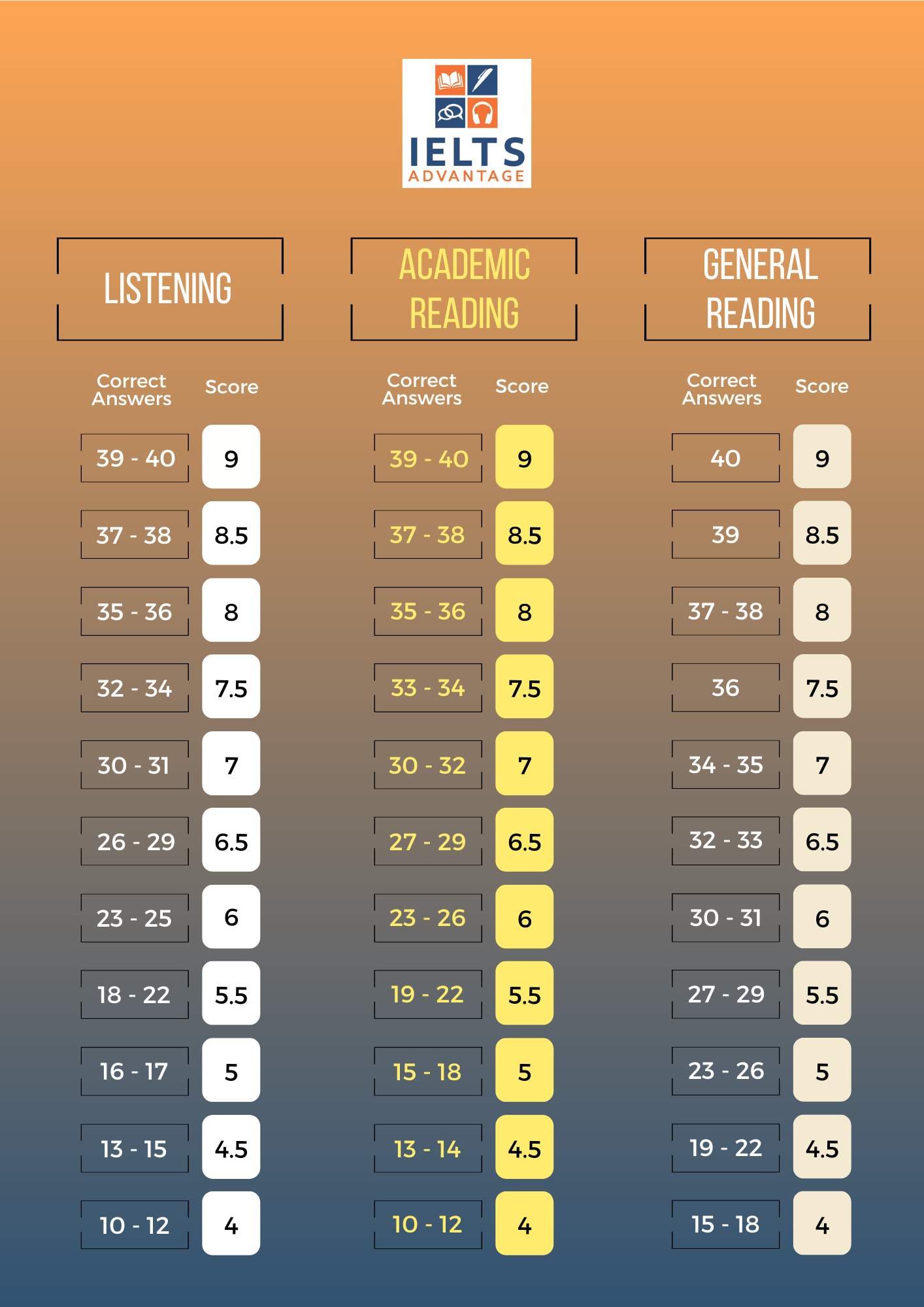One of the most common questions that test-takers have about the International English Language Testing System (IELTS) is how the scoring system works. Understanding how IELTS scores are calculated can help you prepare better and set realistic expectations for your test performance.
IELTS scores are divided into four sections: Listening, Reading, Writing, and Speaking. Each section is scored on a scale of 0 to 9, with 0 being the lowest and 9 being the highest. The overall band score is the average of the four individual scores, rounded to the nearest half band. For example, if your scores in the four sections are 7.5, 8, 6.5, and 7, your overall band score would be 7.25, which would be rounded up to 7.5.
It’s important to note that there are no pass or fail grades in the IELTS test. Instead, the scores are used to indicate your proficiency in the English language. Different institutions and organizations have different score requirements, so it’s essential to check the specific score needed for your purposes, whether it’s for academic admissions, immigration purposes, or professional certification.
Scoring high on the IELTS test requires a combination of strong language skills and effective test-taking strategies. To improve your scores, it’s crucial to practice regularly and familiarize yourself with the test format and requirements. Taking practice tests and seeking feedback from teachers or tutors can also help you identify areas for improvement and focus your study efforts.
If you’re not satisfied with your IELTS scores, you have the option to retake the test. However, it’s essential to wait for a minimum of 11 days before retaking the test. Make sure to use the feedback from your previous test to target your weaknesses and improve your performance in the areas where you struggled.
In conclusion, understanding how IELTS scores are calculated and what they mean can help you navigate the test-taking process more effectively. By setting realistic goals, practicing diligently, and seeking feedback, you can improve your chances of achieving your desired band score. Remember that IELTS scores are just one part of your application or immigration process, so it’s essential to prepare thoroughly and showcase your English language proficiency in the best possible light.
